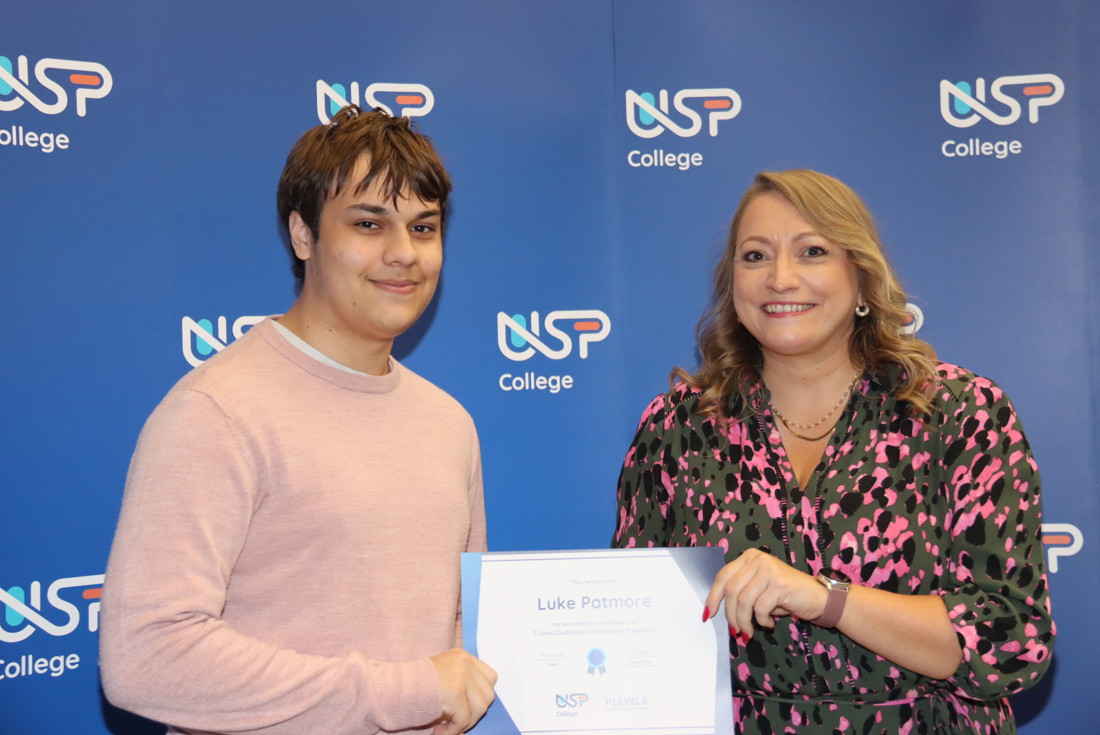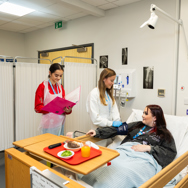From T-Level Student to Future Paramedic
- Posted 14 Oct 2025

When Luke enrolled on the T-Level Health course at USP College, the goal was clear: build a career in healthcare. Today, that ambition is becoming reality. My next step is to continue my training to become a qualified call handler. From there, I plan to apply for an internal apprenticeship to become an EMT on the ambulance, and then progress to paramedic.
T-Levels, in my opinion, work better for the healthcare industry than standard A-Levels as you learn the theory but it can be applied practically, where you can see what you’re being taught be put into practice.
That vision didn’t happen overnight. It was shaped by hands-on experiences and guidance throughout the course. The college’s work experience team opened doors to the NHS, offering behind-the-scenes access to hospitals and real-world insight into how healthcare operates. Those opportunities helped Luke choose the right path forward.
Practical learning played a big role too. Time spent in the simulation suite allowed Luke to practice essential skills in a safe, controlled environment - skills that will be used every day in a future career.
The T-Level placement proved to be a turning point. Regular conversations with hospital professionals gave Luke the confidence and knowledge to make informed decisions about next steps. Unlike traditional A-Levels, the T-Level approach combined theory with practice, bringing classroom learning to life and showing how it applies in real healthcare settings.
For anyone considering a career in health, this journey shows what’s possible when education goes beyond textbooks. With the right mix of theory, practical experience, and industry insight, T-Level Health doesn’t just prepare students for university - it sets them up for success in the workplace.


